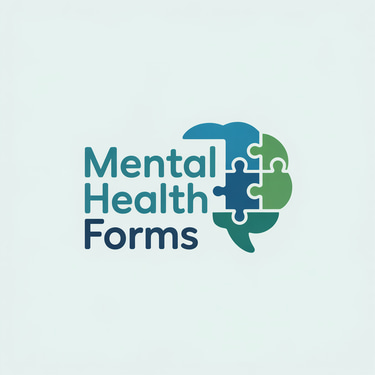Why Every Mental Health Professional Needs Legally Sound Consent and Intake Forms
From therapists to psychiatrists, every mental health professional needs strong consent forms for compliance, trust, and risk reduction. Here’s what to include.
8/15/20252 min read


In mental health care, the first conversation you have with a client isn’t just verbal — it’s written. Whether you’re a counselor, psychologist, nurse practitioner, psychiatrist, clinical social worker, or case manager, your consent and intake forms are more than just paperwork. They are the foundation for ethical practice, legal compliance, and a trusting therapeutic relationship. Yet too often, professionals rely on outdated, incomplete, or generic forms. The risk? Legal vulnerability, compliance issues, and misunderstandings that can erode the very trust we work so hard to build.
Why Consent and Intake Forms Are Non-Negotiable
No matter your role or specialty, strong intake and consent documentation protects both you and your clients. Here’s why:
Legal Protection – In the event of a dispute, signed and properly worded forms serve as evidence that clients understood and agreed to your policies and the scope of care.
Ethical Compliance – Professional boards like the APA, NASW, and NBCC require informed consent as a standard of care.
Informed Consent – Clients must clearly understand what to expect from services, their rights, and any risks or limitations before therapy or treatment begins.
Trust-Building – A well-crafted consent form signals professionalism, transparency, and respect from the very first session.
The Risks of Outdated or Generic Forms
Using a “one-size-fits-all” template or an outdated document can put your practice at risk. Common pitfalls include:
Missing HIPAA & 42 CFR Part 2 Compliance – Omitting legally required privacy disclosures for mental health and substance use treatment.
No Telehealth Clauses – In today’s hybrid care environment, telehealth consent is essential for legal and ethical coverage.
Vague Policies – Inadequate detail around scheduling, cancellations, and fees can lead to client confusion and payment disputes.
Incomplete Confidentiality Statements – Failure to clearly define limits of confidentiality or duty to warn obligations can create liability.
Must-Have Elements in a Mental Health Consent/Intake Form
While specific requirements vary by profession and state, a comprehensive consent/intake form for mental health services should include:
Client Information – Basic demographics, contact info, and emergency contacts.
Scope of Services – Clear explanation of the services you provide and your qualifications.
Confidentiality & Privacy Notices – HIPAA disclosures and, if applicable, 42 CFR Part 2 language for substance use treatment.
Telehealth Terms – Informed consent for remote sessions, platform details, and privacy safeguards.
Fees & Insurance Policies – Payment terms, cancellation fees, and insurance billing details.
Emergency Protocols – Crisis resources and procedures for urgent situations.
Consent to Treatment – A clear statement of understanding and agreement, signed by the client (and guardian if applicable).
How Professionally Designed Forms Save Time and Reduce Risk
Many professionals create their own forms — but in doing so, they risk missing important legal language or compliance requirements. Professionally designed forms:
Are pre-compliant with HIPAA and other industry standards.
Save hours compared to building from scratch.
Can be customized with your practice name, logo, and policies.
Are ready for audits or legal reviews at any time.
Provide a better client onboarding experience, helping clients feel informed and secure.
The Bottom Line
Whether you’re in private practice, a group clinic, or a hospital setting, your intake and consent forms are a vital part of your professional foundation. They protect your license, uphold ethical standards, and build trust with your clients from the very start.
Don’t leave this critical piece of your practice to chance or outdated templates. The right forms give you confidence and peace of mind — so you can focus on delivering the care your clients deserve. Your clients trust you with their care. Trust us to help protect your practice.
Browse Our Professionally Designed Mental Health Forms Now →
Forms
Streamlined templates for mental health documentation needs.
© 2023. All rights reserved.
